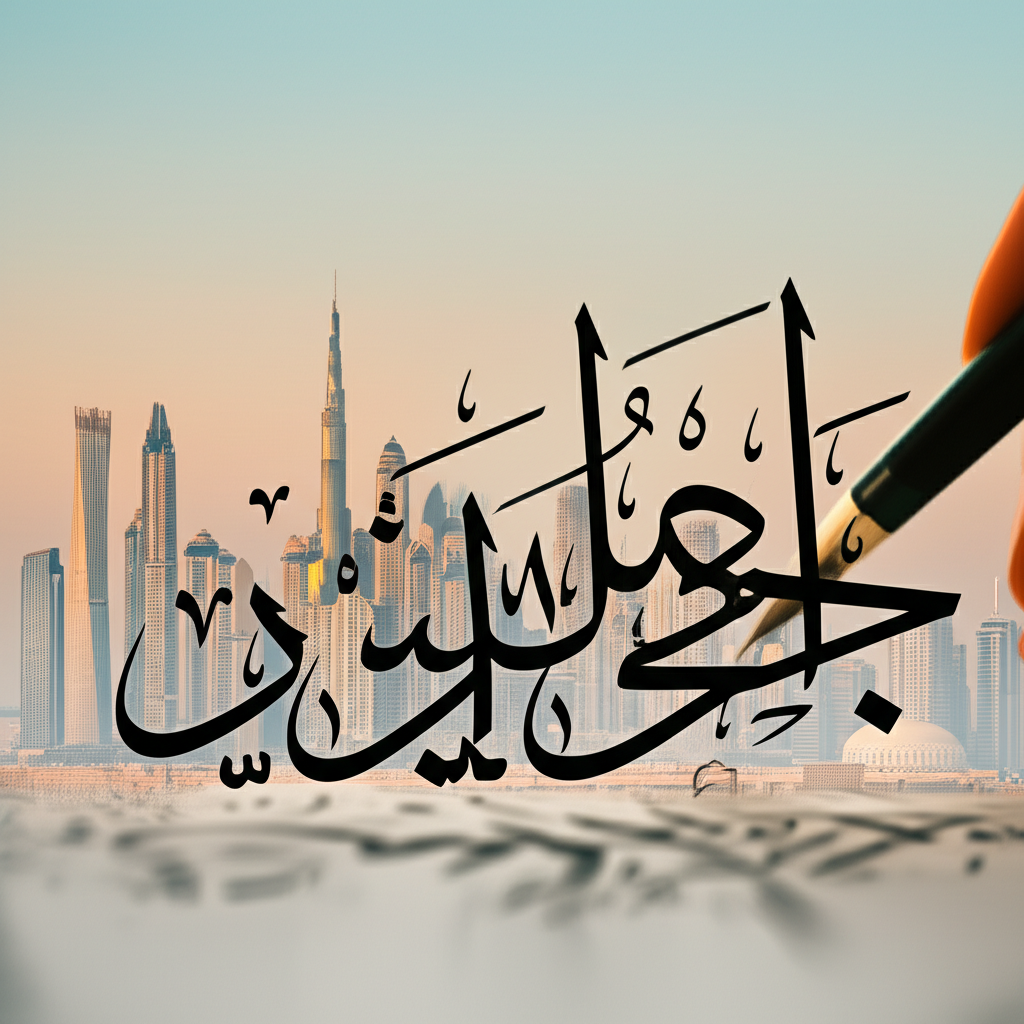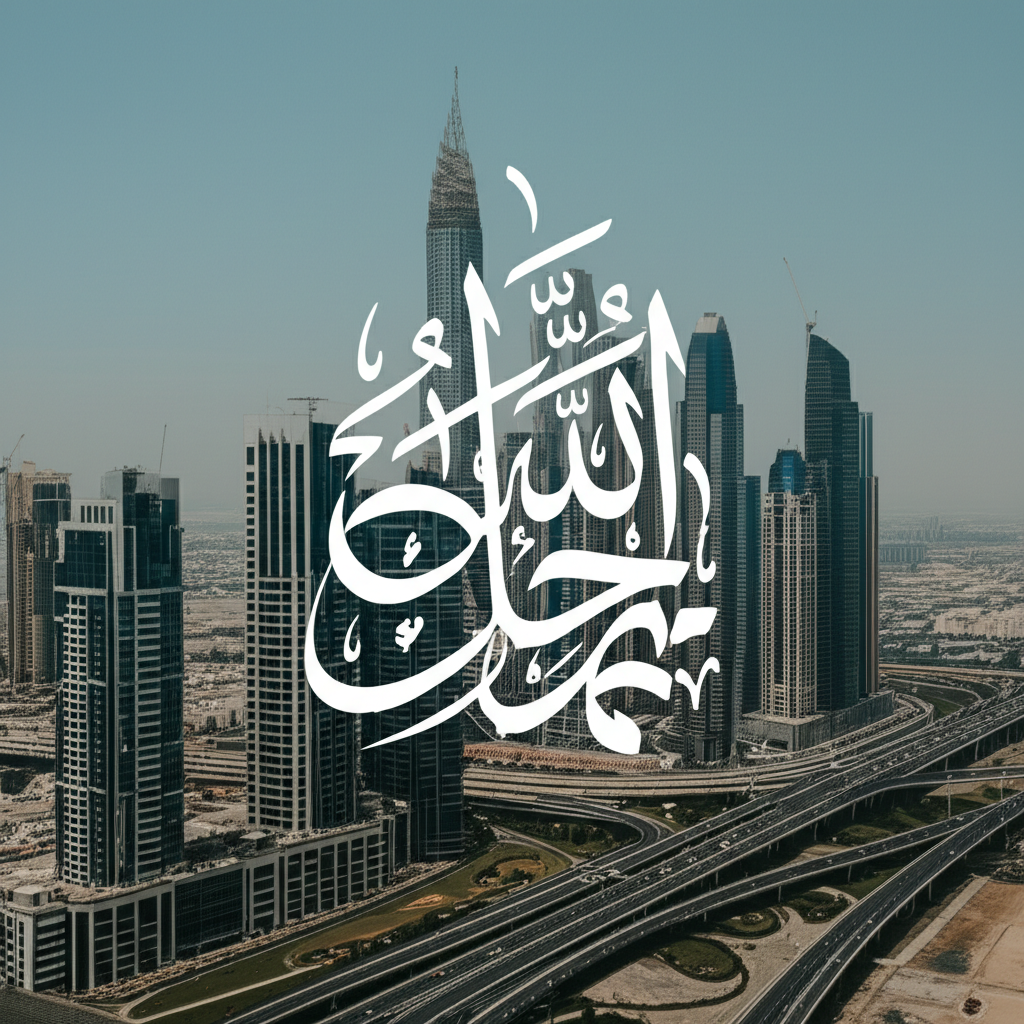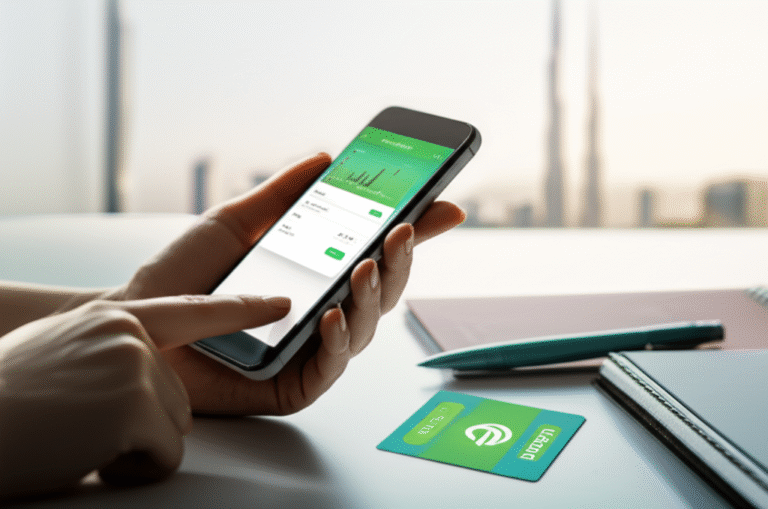Arabic language in Dubai: Your quick guide to essential phrases and understanding the local dialect for seamless communication.
Welcome to Dubai! Navigating a new city can be exciting, but sometimes a little daunting, especially when it comes to language. Many of us worry about not understanding or being understood. But don’t let that stop you! In Dubai, English is widely spoken, making everyday life easy. However, knowing a few basic Arabic phrases can truly enhance your experience, opening doors to richer interactions and a deeper connection with the local culture. This guide is here to simplify it all, offering you clear, step-by-step tips and essential phrases to help you feel confident and comfortable. Let’s get you speaking like a local, the easy way!
Contents
- 1 Why Learning Basic Arabic in Dubai Matters
- 2 Understanding the Dubai Dialect: More Than Just Words
- 3 Essential Arabic Phrases for Everyday Life
- 4 Tips for Learning and Practicing
- 5 Arabic in Telecom Services in Dubai
- 6 Nol Card and Arabic
- 7 Navigating Dubai Mall and Souks
- 8 Arabic Etiquette and Cultural Nuances
- 9 Frequently Asked Questions (FAQ)
- 10 Conclusion
Why Learning Basic Arabic in Dubai Matters
Dubai is a global hub, a melting pot of cultures and nationalities. While English is the lingua franca for business and daily transactions, the official language of the UAE is Arabic. Embracing a few Arabic phrases isn’t just about politeness; it’s about showing respect for the local culture and traditions. It can transform your interactions, from a simple ‘thank you’ to a shopkeeper to understanding directions from a local resident. Even a small effort can lead to warmer welcomes and more authentic experiences. Think of it as unlocking a new layer of your Dubai adventure!
Understanding the Dubai Dialect: More Than Just Words

The Arabic spoken in Dubai is primarily a dialect of Gulf Arabic, often referred to as Khaleeji Arabic. While Modern Standard Arabic (MSA) is used in formal settings like news broadcasts and literature, the everyday spoken language is more relaxed and conversational. Don’t worry about mastering complex grammar right away. The goal for most visitors and new residents is to pick up common greetings, essential phrases for daily life, and words that help in navigating services. You’ll find that many Emiratis are happy to help and appreciate any attempt to speak their language.
Essential Arabic Phrases for Everyday Life
Let’s dive into some of the most useful Arabic words and phrases. We’ll break them down to make them easy to learn and remember.
Greetings and Basic Courtesies
Starting with greetings is the best way to make a good impression.
- Marhaba (مرحبا): Hello. This is a general and widely used greeting.
- As-salamu alaykum (السلام عليكم): Peace be upon you. A more formal and respectful greeting, often responded with “Wa alaykum as-salam” (وعليكم السلام) – And upon you be peace.
- Sabah al-khair (صباح الخير): Good morning. Respond with “Sabah an-noor” (صباح النور).
- Masa’ al-khair (مساء الخير): Good evening. Respond with “Masa’ an-noor” (مساء النور).
- Shukran (شكراً): Thank you.
- Afwan (عفواً): You’re welcome / Excuse me.
- Na’am (نعم): Yes.
- La (لا): No.
- Min fadlak (من فضلك) (to a male) / Min fadlik (من فضلكِ) (to a female): Please.
- Ma’a as-salama (مع السلامة): Goodbye.
Getting Around
Navigating Dubai is generally easy with English, but knowing these can be helpful.
- Ayna…? (أين…؟): Where is…?
- Al-hammam (الحمام): The bathroom.
- Al-matar (المطار): The airport.
- Al-suyuq (السوق): The market/souk.
- Al-metro (المترو): The metro.
- Yasar (يسار): Left.
- Yameen (يمين): Right.
- ‘Indi (عندي): I have.
- La ‘indi (لا عندي): I don’t have.
- Kam ath-thaman? (كم الثمن؟): How much is the price?
Shopping and Dining
When you’re out and about, these phrases will come in handy.
- Mumtaz (ممتاز): Excellent.
- Tayyib (طيب): Good / Okay.
- La afham (لا أفهم): I don’t understand.
- Hal tatakallam al-ingleeziya? (هل تتكلم الإنجليزية؟): Do you speak English?
- Ana ureed… (أنا أريد…): I want…
- Al-ma’ (الماء): Water.
- Al-qahwa (القهوة): Coffee.
- Al-shai (الشاي): Tea.
- Al-fa’hura (الفاتورة): The bill.
Numbers
Knowing numbers is crucial for transactions and understanding prices.
Here are the basic numbers:
| Arabic Number | Arabic Word | English |
|---|---|---|
| ١ | Wahid (واحد) | One |
| ٢ | Ithnan (اثنان) | Two |
| ٣ | Thalatha (ثلاثة) | Three |
| ٤ | Arba’a (أربعة) | Four |
| ٥ | Khamsa (خمسة) | Five |
| ٦ | Sitta (ستة) | Six |
| ٧ | Sab’a (سبعة) | Seven |
| ٨ | Thamaniya (ثمانية) | Eight |
| ٩ | Tisa’a (تسعة) | Nine |
| ١٠ | Ashara (عشرة) | Ten |
Tips for Learning and Practicing

Learning a new language can be a fun journey. Here are some practical tips to help you along the way:
- Start Small: Focus on mastering a few essential phrases first. Greetings and thank yous go a long way.
- Listen Actively: Pay attention to how people speak. Watch Arabic-language shows or listen to music.
- Use Apps: There are many language learning apps like Duolingo, Memrise, or specialized Arabic apps that can help with pronunciation and vocabulary.
- Practice with Locals: Don’t be afraid to try out the phrases you learn. Most people will appreciate your effort and may even help you correct your pronunciation.
- Carry a Phrasebook or Use Your Phone: Keep a small phrasebook or use a translation app on your smartphone for quick reference. Google Translate is a popular choice.
- Learn the Alphabet (Optional but Helpful): While not strictly necessary for basic communication, learning the Arabic alphabet can help you recognize signs and understand pronunciation better. You can find resources on the official website of the Government of the United Arab Emirates for cultural information.
- Be Patient with Yourself: Language learning takes time and practice. Celebrate your progress and don’t get discouraged by mistakes.
Arabic in Telecom Services in Dubai
In Dubai, telecommunication providers like Etisalat and DU are very user-friendly for non-Arabic speakers. However, understanding a few Arabic terms related to your phone services can still be beneficial, especially when dealing with customer service or understanding SMS notifications.
Key Telecom Terms in Arabic
Here are some terms you might encounter:
- Raqam (رقم): Number (e.g., phone number).
- Sim Card (شريحة): SIM card.
- Raseed (رصيد): Balance (e.g., mobile balance).
- Intnet (إنترنت): Internet.
- Data (بيانات): Data.
- Khidma (خدمة): Service.
- Mushtareek (مشترك): Subscriber.
- Shahn (شحن): Recharge.
- Makhsoos (مخصوص): Special / Dedicated (e.g., special offer).
- Ittisalat (اتصالات): Communications (often refers to Etisalat).
- Mokalamah (مكالمة): Call.
- Rasalah (رسالة): Message.
Checking Your Mobile Balance
While you can usually check your balance via apps or by dialing a code, knowing the Arabic term for balance might help if you see it in an SMS alert.
To check your balance with Etisalat or DU, you typically dial a USSD code. For example:
- Etisalat: Dial 101#
- DU: Dial 135#
You’ll usually see your balance displayed in English or with clear indicators. The word for balance is Raseed (رصيد).
Common SMS Notifications
You might receive SMS alerts in Arabic. For instance:
- “Raseedak al-baqi huwa: [amount]” means “Your remaining balance is: [amount]”.
- “Tam shahn al-rasheed” means “Balance has been recharged”.
Nol Card and Arabic
The Nol card is essential for using Dubai’s public transport, including the Metro, buses, and trams. While the machines and announcements are often in English, knowing a few Arabic terms can be useful.
Nol Card (بطاقة نول)
- Nol (نول): This is a unique Arabic word meaning “fare” or “cost.”
- Al-mahata (المحطة): The station.
- Al-hifdh (الحفظ): Top-up / Recharge.
When interacting with staff at a Nol card customer service center, you might use phrases like:
- “Ana ureed an ashhan Nol card” (أنا أريد أن أشحن بطاقة نول) – I want to top up my Nol card.
- “Kam thaman al-bataka?” (كم ثمن البطاقة؟) – How much is the card?
You can find more information about Nol cards and their usage on the official Roads and Transport Authority (RTA) website.
Dubai is famous for its shopping. Whether you’re in a modern mall or a traditional souk, a little Arabic goes a long way.
In Malls:
Malls like The Dubai Mall or Mall of the Emirates are very international. Staff are fluent in English. However, if you want to ask for something specific:
- “Ayna al-ma’mal al-malabis?” (أين المحل الملابس؟) – Where is the clothing store?
- “Hal ladaykum hadha bil-loon akhar?” (هل لديكم هذا باللون آخر؟) – Do you have this in another color?
In Souks (Traditional Markets):
Visiting the Gold Souk or Spice Souk is a quintessential Dubai experience. Here, bargaining is common, and knowing some Arabic can be advantageous.
- “Kam akheer thaman?” (كم آخر ثمن؟) – What’s the final price? (Used when bargaining)
- “Hadha ghali jiddan” (هذا غالي جداً) – This is very expensive. (Use this politely)
- “Mumkin khamra?” (ممكن خصم؟) – Can I have a discount?
| English Phrase | Arabic Phrase | Pronunciation Guide | Context |
|---|---|---|---|
| Hello | مرحباً | Marhaba | General greeting |
| Thank you | شكراً | Shukran | Expressing gratitude |
| How much? | كم الثمن؟ | Kam ath-thaman? | Asking price |
| Excuse me / You’re welcome | عفواً | Afwan | Polite way to get attention or respond to thanks |
| I don’t understand | لا أفهم | La afham | When communication breaks down |
Arabic Etiquette and Cultural Nuances
Beyond the words, understanding a bit of etiquette can enhance your interactions.
- Respect for Elders: Always show respect to older individuals.
- Right Hand: Use your right hand for eating, giving, and receiving items. The left hand is traditionally considered unclean.
- Dress Code: While Dubai is modern, modest dress is appreciated, especially in public places, malls, and religious sites.
- Ramadan: During the holy month of Ramadan, it’s respectful to avoid eating, drinking, or smoking in public during fasting hours.
- Greetings: A handshake is common between men. Men may kiss each other on the cheek as a sign of respect. Men and women may not shake hands unless the woman extends her hand first.
Frequently Asked Questions (FAQ)
Q1: Is it necessary to learn Arabic to live or visit Dubai?
A1: No, it’s not strictly necessary. English is widely spoken and understood in most places, especially in tourist areas, hotels, and businesses. However, knowing some basic Arabic phrases can greatly enhance your experience and show respect for the local culture.
Q2: What is the most important Arabic phrase to learn for Dubai?
A2: “Shukran” (Thank you) and “Marhaba” (Hello) are incredibly useful and easy to remember. They are polite ways to acknowledge and interact with people.
Q3: Will I be able to read signs in Dubai if I don’t know Arabic?
A3: Most public signs, especially in tourist areas, malls, and transportation, are bilingual and appear in both Arabic and English. You will have no trouble navigating with English alone.
Q4: How do I ask for directions in Arabic?
A4: You can start with “Ayna…?” (Where is…?) followed by the place you’re looking for. For example, “Ayna al-metro?” (Where is the metro?). If you’re unsure of pronunciation, pointing to a map or using a translation app is also effective.
Q5: Is it polite to use Arabic phrases even if the person I’m speaking to knows English?
A5: Yes, it’s always considered polite and a sign of respect. Even a simple “Shukran” or “Marhaba” in Arabic will often be appreciated by locals.
Q6: Where can I find resources to learn more Arabic?
A6: You can use language learning apps like Duolingo or Memrise, find online Arabic courses, or even look for local language exchange groups. The Ministry of Culture and Youth also promotes cultural understanding, which can include language.
Conclusion
Dubai is a city that welcomes everyone with open arms, and while English will serve you well, embracing a few words of Arabic can truly enrich your journey. From simple greetings to essential phrases for shopping and transport, learning even a little bit of the local language opens up a more authentic and connected experience. Remember that the people of Dubai are known for their hospitality, and your efforts to communicate in their language will be met with warmth and appreciation. So, go ahead, practice those phrases, and enjoy the deeper connections you’ll make. Your adventure in Dubai just got a whole lot more rewarding!


